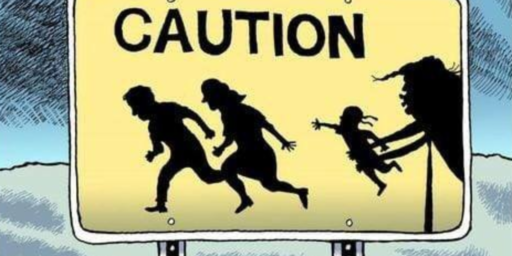Age of Abundance
George Will reviews Cato vice president Brink Lindsey‘s new book The Age of Abundance: How Prosperity Transformed America’s Politics and Culture. It’s a useful reminder of the staggering level of improvement in our lives as compared to those of our great grandparents.
Until very recently, he notes, when people prayed for their daily bread, they often were praying for just that. Not so long ago, many ordinary lives of quiet desperation ended especially dismally: about 10 percent of burials in New York City in 1889 were in potter’s fields. In 1900, 1.75 million children between the ages of 10 and 15 — almost one-fifth of all children in that age cohort — were in the work force. Children provided one-fourth to one-third of the incomes for working-class families, which spent more than 90 percent of their household earnings on food, shelter and clothing. In 1900, Americans spent nearly twice as much on funerals as on medicine, and less than 2 percent of Americans took vacations.
The postwar boom changed all that and had profound effect not only on the material lives but on our culture and politics. College education for the masses. Rebellion against authority and social norms. The anachronization of stay-at-home moms. The Benjamin Spockization of child rearing. Free love. Delayed adulthood.
Not surprisingly, Lindsay is more enthralled with the effects of the newfound liberty provided by smaller families, delayed marriage, and sexual promiscuity than Will.
Praise for Edmund Burke is a kind of tic on the part of some conservatives, arising more from reflex than reflection. However, Burke provided a discomforting postulate that is a perennial challenge to conservatives of a libertarian tendency, like Lindsey: “The effect of liberty to individuals is that they may do what they please: we ought to see what it will please them to do, before we risk congratulations.”
Ultimately, though, he sides with Lindsey:
Lindsey rightly says that “today’s typical red-state conservative is considerably bluer on race relations, the role of women and sexual morality than his predecessor of a generation ago.” And “the typical bluestate liberal is considerably redder than his predecessor when it comes to the importance of markets to economic growth, the virtues of the two-parent family and the morality of American geopolitical power.” In “the bell curve of ideological allegiance,” the large bulging center has settled, for now, on an “implicit libertarian synthesis, one which reaffirms the core disciplines that underlie and sustain the modern lifestyle while making much greater allowances for variations within that lifestyle.” If so, material abundance has been, on balance , good for us, and Lindsey’s measured cheerfulness is, like his scintillating book, reasonable.
The book sounds like a good read, although Will’s precis gives the impression that it’s a bit given to economic determinism. While economic prosperity certainly made many of the social trends that followed more likely, surely other factors had a profound impact as well.





